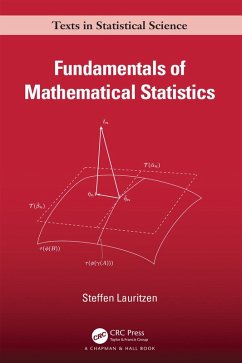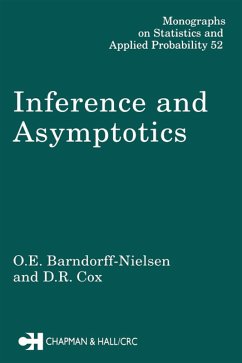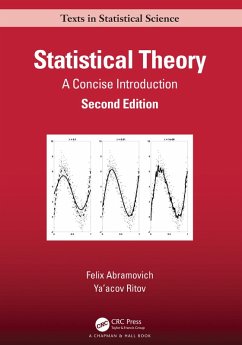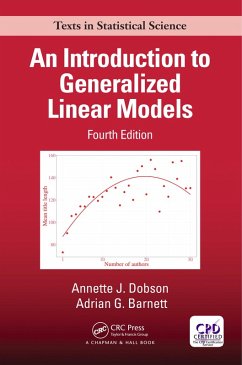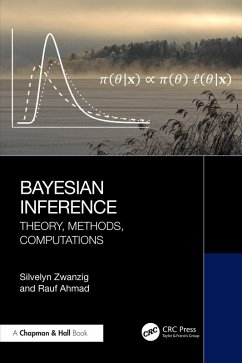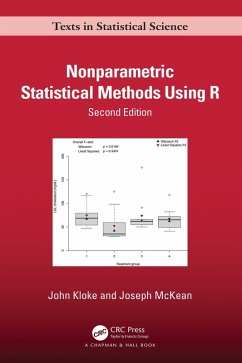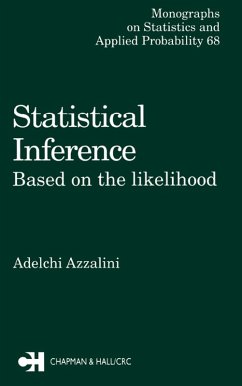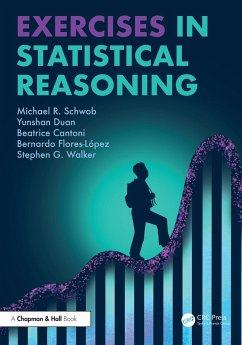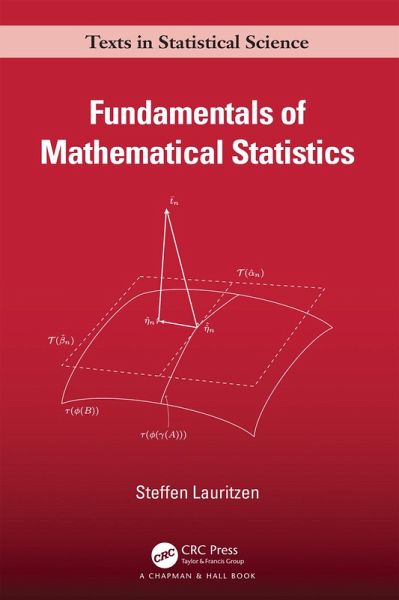
Fundamentals of Mathematical Statistics (eBook, ePUB)
Versandkostenfrei!
Sofort per Download lieferbar
86,95 €
inkl. MwSt.
Weitere Ausgaben:

PAYBACK Punkte
43 °P sammeln!
Fundamentals of Mathematical Statistics is meant for a standard one-semester advanced undergraduate or graduate-level course in Mathematical Statistics. It covers all the key topics-statistical models, linear normal models, exponential families, estimation, asymptotics of maximum likelihood, significance testing, and models for tables of counts. It assumes a good background in mathematical analysis, linear algebra, and probability but includes an appendix with basic results from these areas. Throughout the text, there are numerous examples and graduated exercises that illustrate the topics cov...
Fundamentals of Mathematical Statistics is meant for a standard one-semester advanced undergraduate or graduate-level course in Mathematical Statistics. It covers all the key topics-statistical models, linear normal models, exponential families, estimation, asymptotics of maximum likelihood, significance testing, and models for tables of counts. It assumes a good background in mathematical analysis, linear algebra, and probability but includes an appendix with basic results from these areas. Throughout the text, there are numerous examples and graduated exercises that illustrate the topics covered, rendering the book suitable for teaching or self-study.
Features
This textbook will be a perfect fit for an advanced course in Mathematical Statistics or Statistical Theory. The concise and lucid approach means it could also serve as a good alternative, or supplement, to existing texts.
Features
- A concise yet rigorous introduction to a one-semester course in Mathematical Statistics
- Covers all the key topics
- Assumes a solid background in Mathematics and Probability
- Numerous examples illustrate the topics
- Many exercises enhance understanding of the material and enable course use
This textbook will be a perfect fit for an advanced course in Mathematical Statistics or Statistical Theory. The concise and lucid approach means it could also serve as a good alternative, or supplement, to existing texts.
Dieser Download kann aus rechtlichen Gründen nur mit Rechnungsadresse in A, B, BG, CY, CZ, D, DK, EW, E, FIN, F, GR, HR, H, IRL, I, LT, L, LR, M, NL, PL, P, R, S, SLO, SK ausgeliefert werden.




